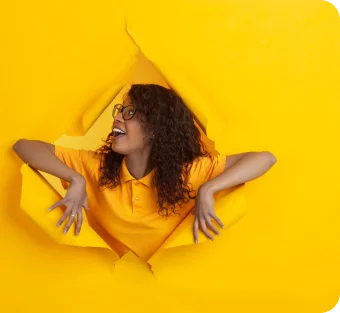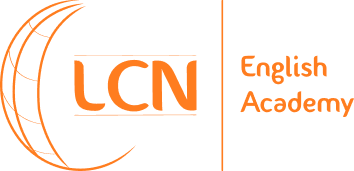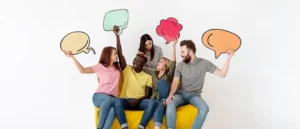Tabla de contenidos
El verbo “to be” es un verbo irregular y principalmente se utiliza para expresar el estado o condición de una persona, cosa o situación. Sus formas en presente son “am” para la primera persona del singular, “is” para la tercera persona del singular y “are” para la segunda persona del singular y todas las personas del plural.
- I am (yo soy/estoy)
- You are (tú eres/estás)
- He/She/It is (él/ella/es está)
- We are (nosotros somos/estamos)
- They are (ellos/ellas son/están)
También se utiliza para describir características físicas o personales, nacionalidad, profesión, ubicación, posesión y muchos otros usos.
Es importante recordar que el verbo “to be” es muy versátil y se utiliza en una amplia variedad de contextos en inglés, te invitamos a nuestro curso de inglés a practicar y familiarizarse con sus diferentes formas y usos.
¿Cómo se usa el verbo To Be?
Ya sabemos qué es el verbo “to be”, ahora te enseñaremos a emplearlo. Hay varias formas dependiendo del contexto y el tiempo verbal. Aquí te presento algunos ejemplos de cómo se usa:
| Express identity or characteristics Expresar identidad o características |
I am a student. (Soy estudiante) |
| She is tall. (Ella es alta) | |
| They are friendly. (Ellos son amigables) | |
| Indicate the location Indicar la ubicación |
The book is on the table. (El libro está sobre la mesa) |
| We are at the park. (Estamos en el parque) | |
| He is in the office. (Él está en la oficina) | |
| Talk about possession Para hablar de posesión |
This is my car. (Este es mi carro) |
| The house is theirs. (La casa es de ellos) | |
| Is this your bag? (¿Es esta tu bolsa?) |
El verbo to be como auxiliar
Además de saber qué es el verbo “to be”, es importante saber que también se utiliza como auxiliar en diferentes tiempos verbales y construcciones gramaticales en inglés.
| Present continuous Presente continuo | Past continuousPasado continuo |
| She is studying for the exam. Ella está estudiando para el examen They are watching a movie. Ellos están viendo una película We are going to the party. Vamos a la fiesta. |
He was playing soccer yesterday. Él estaba jugando fútbol ayer. They were working on a project all night. Estuvieron trabajando en un proyecto toda la noche. She was reading a book when I called her. Ella estaba leyendo un libro cuando la llamé. |
| Passive voiceVoz pasiva | Present perfectPresente perfecto |
| The cake was baked by my mom. El pastel fue horneado por mi mamá The house is being cleaned by the maid. La casa está siendo limpiada por la empleada. The report will be submitted tomorrow. El informe será entregado mañana. |
I have been to Paris. He estado en París She has been studying all day. Ha estado estudiando todo el día They have been working on the project for months. Han estado trabajando en el proyecto durante meses. |
El verbo to be como verbo principal
El verbo “to be” también se utiliza como verbo principal en inglés para expresar estados, sentimientos o acciones.
- Para expresar estados o características:
- She is tall. (Ella es alta)
- Para expresar ubicación:
- The book is on the table. (El libro está sobre la mesa)
- Para hablar de profesiones o roles:
- He is a doctor. (Él es un doctor)
- Para expresar estados de salud:
- They are recovering from the flu. (Ellos se están recuperando de la gripe)
- Para hablar de eventos o actividades:
- We are having a party tonight. (Vamos a tener una fiesta esta noche)
¿Cuándo se usa el verbo to be?
El verbo “to be” se utiliza en varios contextos en inglés, como lo has podido ver hasta el momento, para expresar identidad o características, para indicar ubicación, para hablar de posesión; también su uso varía según el tiempo verbal y la estructura de la oración como lo es el tiempo presente continuo, pasado simple, presente perfecto, pasado continuo, entre otros.
Entre más practiquemos estos usos, más probabilidades hay de entender completamente qué es el verbo “to be” en inglés. Recuerda que en nuestro curso de inglés podrás ver este tema más a profundidad.
¿Cómo se conjuga el verbo to be?
El verbo “to be” se conjuga de la siguiente manera en los tiempos verbales más comunes:
| Present simple Presente simple |
Past simple Pasado simple |
Present Continuous Presente continuo |
Past Continuous Pasado continuo |
| I am (Yo soy/estoy) | I was (Yo era/estaba) | I am being (Yo estoy siendo) | I was being (Yo estaba siendo) |
| You are (Tú eres/estás) | You were (Tú eras/estabas) | You are being (Tú estás siendo) | You were being (Tú estabas siendo) |
| He is (Él es/está) | He was(Él era/estaba) | He is being(Él está siendo) | He was being(Él estaba siendo) |
| She is (Ella es/está) | She was(Ella era/estaba) | She is being(Ella está siendo) | She was being(Ella estaba siendo) |
| It is (Esto es/está) | It was (Esto era/estaba) | It is being(Esto está siendo) | It was being(Esto estaba siendo) |
| We are (Nosotros/as somos/estamos) | We were(Nosotros/as éramos/estábamos) | We are being (Nosotros/as estamos siendo) | We were being (Nosotros/as estábamos siendo) |
| You are (Ustedes son/están) | You were (Ustedes eran/estaban) | You are being (Ustedes están siendo) | You were being (Ustedes estaban siendo) |
| They are (Ellos/as son/están) | They were (Ellos/as eran/estaban) | They are being (Ellos/as están siendo) | They were being (Ellos/as estaban siendo) |
Formas del verbo to be
Hasta este momento has podido observar qué es el verbo to be en los tiempos verbales más comunes como lo son; presente simple, pasado simple, presente continuo, pasado continuo, presente perfecto, pasado perfecto y futuro simple. Estas dos últimas no las hemos visto hasta ahora, y aprovecharemos este espacio para hablar de ellas. Aquí podrás ver qué es el verbo “to be” en pasado perfecto y futuro simple.
Infinitivo: to be
Gerundio: being
Participio pasado: been
| Past perfect (Pasado perfecto) | ||
| Inglés | Example in English | Ejemplo en Español |
| I had been Yo había estado / Yo había sido |
I had been to Paris before I visited London. | Yo había estado en París antes de visitar Londres. |
| You had been Tú habías estado / Tú habías sido |
You had been sick for a week before you recovered. | Tú habías estado enfermo durante una semana antes de recuperarte. |
| He had been Él había estado / Él había sido |
He had been a teacher for five years before he became a principal. | Él había sido profesor durante cinco años antes de convertirse en director. |
| She had been Ella había estado / Ella había sido |
She had been in the choir before she joined the band. | Ella había estado en el coro antes de unirse a la banda. |
| It had been Eso había estado / Eso había sido |
It had been raining all autumn before the temperature went high. | Había estado lloviendo todo el verano antes de que la temperatura subiera. |
| We had been Nosotros habíamos estado / Nosotros habíamos sido |
We had been friends since childhood before we drifted apart. | Nosotros habíamos sido amigos desde la infancia antes de distanciarnos. |
| You had been Ustedes habían estado / Ustedes habían sido |
You had been to that restaurant before and loved it. | Habían estado en ese restaurante antes y les encantó. |
| They had been Ellos habían estado / Ellos habían sido |
They had been working on the project for months before they completed it. | Habían estado trabajando en el proyecto durante meses antes de completarlo. |
| Future simple (Futuro simple) | ||
| Inglés | Example in English | Ejemplo en Español |
| I will be Yo seré / Yo estaré |
I will be at the party tonight. | Estaré en la fiesta esta noche. |
| You will be Tú serás / Tú estarás |
You will be traveling a lot with your partner. | Estarás viajando bastante con tu pareja. |
| He will be Él estará / Él será |
He will be in London next week. | Él estará en Londres la próxima semana. |
| She will be Ella será / Ella estará |
She will be at the meeting on Friday. | Ella estará en la reunión el viernes. |
| It will be Eso será / Eso estará |
It will be a sunny day tomorrow. | Mañana será un día soleado. |
| We will be Nosotros seremos / Nosotros estaremos |
We will be eating at that restaurant before it closes. | Nosotros estaremos comiendo en ese restaurante antes de que cierre. |
| You will be Ustedes estarán / Ustedes serán |
You will be busy tomorrow. | Estarán ocupados mañana. |
| They will be Ellos habían estado / Ellos habían sido |
They will be traveling to Europe next month. | Ellos estarán viajando a Europa el próximo mes. |
También se utiliza como auxiliar en la voz pasiva y en construcciones como el presente continuo.
Negativa
| Presente simple negativo | Pasado simple negativo | Presente continuo negativo |
| I am not Yo no estoy / Yo no soy |
I was not / I wasn’t Yo no estaba / Yo no fui |
I am not being Yo no estoy siendo |
| You are not / You aren’t Tú no estás / Tú no eres |
You were not / You weren’t Tú no estabas / Tú no eras |
You are not being Tú no estabas siendo |
| He is not / He isn’tÉl no es / Él no está | He was not / He wasn’tÉl no era / Él no estaba | He is not beingÉl no está siendo |
| She is not / She isn’t Ella no es / Ella no está |
She was not / She wasn’t Ella no era / Ella no estaba |
She is not being Ella no está siendo |
| It is not / It isn’t Eso no es / Eso no está |
It was not / It wasn’t Eso no fue / Eso no estaba |
It is not being Eso no está siendo |
| We are not / We aren’t Nosotros no somos / Nosotros no estamos |
We were not / We weren’t Nosotros no éramos / Nosotros no estábamos |
We are not being Nosotros no estamos siendo |
| You are not / You aren’t Ustedes no son / Ustedes no están |
You were not / You weren’t Ustedes no eran / Ustedes no estaban |
You are not being Ustedes no están siendo |
| They are not / They aren’t Ellos no son / Ellos no están |
They were not / They weren’t Ellos no son / Ellos no están |
They are not being Ellos no están siendo |
| Pasado continuo negativo | Presente perfecto negativo | Pasado perfecto negativo |
| I was not being Yo no estaba siendo |
I have not been / I haven’t been No he estado / No he sido |
I had not been / I hadn’t been No había estado / No había sido |
| You were not being Tú no estabas siendo |
You have not been / You haven’t been No has estado / No has sido |
You had not been / You hadn’t been No habías estado / No habías sido |
| He was not being Él no estaba siendo |
He has not been / He hasn’t been No ha estado / No ha sido |
He had not been / He hadn’t been No había estado / No había sido |
| She was not being Ella no estaba siendo |
She has not been / She hasn’t been No ha estado / No ha sido |
She had not been / She hadn’t been No había estado / No había sido |
| It was not being Eso no estaba siendo |
It has not been / It hasn’t been No ha estado / No ha sido |
It had not been / It hadn’t been No había estado / No había sido |
| We were not being Nosotros no estábamos siendo |
We have not been / We haven’t been No han estado / No han sido |
We had not been / We hadn’t been No habíamos estado / No habíamos sido |
| You were not being Ustedes no estaban siendo |
You have not been / You haven’t been No han estado / No han sido |
You had not been / You hadn’t been No habían estado / No habían sido |
| They were not being Ellos no estaban siendo |
They have not been / They haven’t been Ellos no han estado / Ellos no han sido |
They had not been / They haven’t been No han estado / No han sido |
Las formas de negación se puede utilizar tanto “not” como las contracciones “n’t” para contraer el verbo auxiliar.
Interrogativa
La estructura del verbo ‘to be’ en forma interrogativa maneja el mismo orden sin importar el tiempo verbal:
Verbo to be + sujeto + complemento …
| Present simple interrogative Presente simple interrogativo |
Past simple interrogative Pasado simple interrogativo |
Present continuous interrogative Presente continuo interrogativo |
| Am I? ¿Soy yo? o ¿Estoy yo? |
Was I? ¿Era yo? o ¿Estaba yo? |
Am I being? ¿Estoy siendo yo? |
| Are you? ¿Eres tú? o ¿Estás tú? |
Were you? ¿Eras tú? o ¿Estabas tú? |
Are you being? ¿Estás siendo tú? |
| Is he? ¿Es él? o ¿Está él? |
Was he? ¿Era él? o ¿Estaba él? |
Is he being? ¿Está siendo él? |
| Is she? ¿Es ella? o ¿Está ella? |
Was she? ¿Era ella? o ¿Estaba ella? |
Is she being? ¿Está siendo ella? |
| Is it? ¿Es eso? o ¿Está eso? |
Was it? ¿Era eso? o ¿Estaba eso? |
Is it being? ¿Está siendo eso? |
| Are we? ¿Somos nosotros? o ¿Estamos nosotros? |
Were we? ¿Éramos nosotros? o ¿Estábamos nosotros? |
Are you being? ¿Están siendo ustedes? |
| Are you? ¿Son ustedes? o ¿Están ustedes? |
Were you? ¿Eran ustedes? o ¿Estaban ustedes? |
Are we being? ¿Estamos siendo nosotros? |
| Are they? ¿Son ellos? o ¿Están ellos? |
Were they? ¿Eran ellos? o ¿Estaban ellos? |
Are they being? ¿Están siendo ellos? |
La estructura cambia en presente continuo y pasado continuo.
Verbo to be + sujeto + verbo (-ing)?
Al igual que en presente perfecto y pasado perfecto.
has/have + sujeto + verbo principal +complemento.
| Past continuous interrogative Pasado continuo interrogativo |
Present perfect interrogative Presente perfecto interrogativo |
Past perfect interrogative Pasado perfecto interrogativo |
| Was I being? ¿Estaba siendo yo? |
Have I been? ¿He estado? o ¿He sido? |
Had I been? ¿Había estado? o ¿Había sido? |
| Were you being? ¿Estabas siendo tú? |
Have you been? ¿Has estado? o ¿Has sido? |
Had you been? ¿Habías estado? o ¿Habías sido? |
| Was he being? ¿Estaba siendo él? |
Has he been? ¿Ha estado? o ¿Ha sido? |
Had he been? ¿Había estado? o ¿Había sido? |
| Was she being? ¿Estaba siendo ella? |
Has she been? ¿Ha estado? o ¿Ha sido? |
Had she been? ¿Había estado? o ¿Había sido? |
| Was it being? ¿Estaba siendo eso? |
Has it been? ¿Ha estado? o ¿Ha sido? |
Had it been? ¿Había estado? o ¿Había sido? |
| Were you being? ¿Estaban siendo ustedes? |
Have you been? ¿Han estado? o ¿Han sido? |
Had you been? ¿Habían estado o ¿Habían sido? |
| Were we being? ¿Estabamos siendo nosotros? |
Have we been? ¿Hemos estado? o ¿Hemos sido? |
Had we been? ¿Habíamos estado? o ¿Habíamos sido? |
| Were they being? ¿Estaban siendo ellos? |
Have they been? ¿Han estado? o ¿Han sido? |
Had they been? ¿Habían estado? o ¿Habían sido? |
El verbo to be en futuro simple cuenta con una estructura igual de sencilla a las anteriores.
will + sujeto + verbo to be en infinitivo + complemento?
- Will I be?
¿Seré yo? o ¿Estaré yo? - Will you be?
¿Serás tú o ¿Estarás tú? - Will he be?
¿Será él? o ¿Estará él? - Will she be?
¿Será ella? o ¿Estará ella? - Will it be?
¿Será eso? o ¿Estará eso? - Will we be?
¿Seremos nosotros? o ¿Estaremos nosotros? - Will you be?
¿Serán ustedes? o ¿Estarán ustedes? - Will they be?
¿Serán ellos? o ¿Estarán ellos?
Sabemos que la teoría de que es el verbo to be puede ser demasiada información, pero los invitamos a practicar su inglés en nuestro curso de inglés donde podrán practicar y seguir aprendiendo sobre otros temas.
Conjugación del verbo to be y ejemplos
A lo largo del texto te hemos compartido ejemplos del verbo to be en sus diferentes conjugaciones, a continuación te compartiremos algunas más.
Presente continuo:
- I am being careful with my words.
- Estoy siendo cuidadosa con mis palabras.
- Are you being honest?
- ¿Estás siendo honesta?
- She is being helpful.
- Está siendo útil.
- We are being supportive.
- Estamos siendo comprensivos.
- You are being patient.
- Están siendo pacientes.
- They are being kind to everyone.
- Están siendo amables con todos.
Conjugación del verbo to be presente simple
Anteriormente vimos la conjugación del verbo “to be” en presente simple, ahora te daremos unos ejemplos.
- I am happy.
- Estoy feliz.
- You are my friend.
- Eres mi amigo/a.
- He is tall.
- Él es alto.
- She is a doctor.
- Ella es doctora.
- It is raining.
- Está lloviendo.
- We are students.
- Somos estudiantes.
- You are teachers.
- Ustedes son profesores.
- They are from Spain.
- Ellos son de España.
Recapitulemos que el verbo “to be” se utiliza para describir características, estados y nacionalidades.
Conjugación del verbo to be en pasado simple
- I was tired yesterday.
- Estaba cansada ayer.
- You were my best friend.
- Eras mi mejor amigo.
- He was happy with the result.
- Estaba feliz con el resultado.
- She was my father’s patient.
- Ella fue paciente de mi padre.
- It was snowing all day.
- Estaba nevando todo el día.
- We were a couple.
- Fuimos una pareja.
- You were late for the meeting.
- Estaban tarde para la reunión.
- They were on vacation last week.
- Estaban de vacaciones la semana pasada.
Recuerda que el pasado simple se utiliza para hablar de acciones o estados que ocurrieron en un momento específico en el pasado.
Conjugación del verbo to be en futuro simple
- I will be there tomorrow.
- Estaré allí mañana.
- You will be successful in your career.
- Serás exitosa en tu carrera.
- He will be happy to see you.
- Estará feliz de verte.
- She will be a doctor when she grows up.
- Será doctora cuando sea grande.
- It will be a sunny day.
- Será un día soleado.
- We will be on vacation next month.
- Estaremos de vacaciones el próximo mes.
- You will be my guests at the party.
- Serán mis invitados en la fiesta.
- They will be late for the meeting.
- Llegarán tarde para la reunión.
Recordemos que el futuro simple se utiliza para hablar de situaciones que ocurrirán en un momento posterior al presente.
Ejercicios del verbo to be: preguntas y respuestas
Hasta este momento hemos estudiado qué es el verbo to be y otros aspectos del mismo y como has podido ver hay muchas situaciones, pero con la práctica y la constancia podrás aprenderlo y familiarizarte con él más fácil. A continuación tienes algunos ejercicios de preguntas y respuestas utilizando el verbo “to be”:
- What is your name?
My name is Lina. - Where are you from?
I am from Colombia. - ¿Are you a student?
No, I am not a student. - Are you ready for the exam?
Yes, I am ready for the exam. - Is he your brother?
Yes, he is my brother. - Are you ready to go out?
Yes, we are ready to go. - ¿Are they your friends?
Yes, they are my friends. - ¿Is it raining outside?
Yes, it is raining outside.
Al momento de responder una respuesta con el verbo to be, debes tener en cuenta la persona y el tiempo verbal correspondiente. Sabemos que la práctica hace al maestro y en LCN Idiomas puedes aprender y practicar con excelentes profesores y también con tus compañeros. Si estás interesado en aprender, puedes mirar nuestro curso de inglés y estaremos felices de acompañarte en el proceso.








